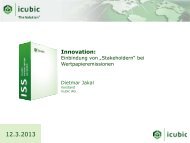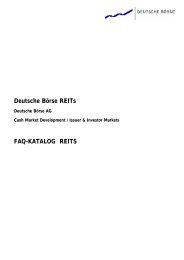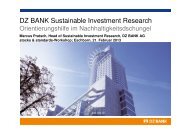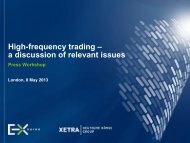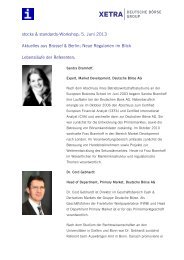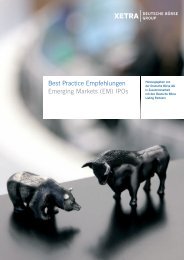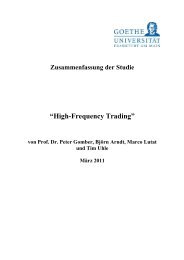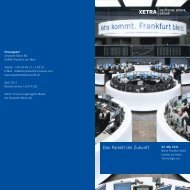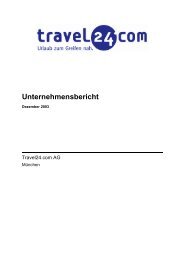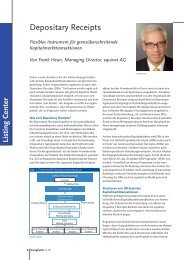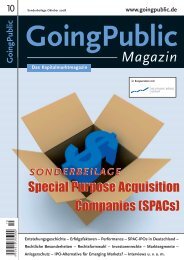Südzucker International Finance B. V. Südzucker AG ... - Xetra
Südzucker International Finance B. V. Südzucker AG ... - Xetra
Südzucker International Finance B. V. Südzucker AG ... - Xetra
Create successful ePaper yourself
Turn your PDF publications into a flip-book with our unique Google optimized e-Paper software.
Sugar segmentof 36 %, but at least by 15 % per product line, wouldalso be difficult for domestic beet farmers and sugarproducers.As it proved impossible to arrive at a compromiseby March 31, 2003, it can be assumed that thenegotiations will recommence in September 2003at the earliest.Future of the sugar market regulationThe sugar market regulation was prolonged toJune 30, 2006. Within this framework, the council ofministers required the commission to submit a reporton the sugar market regulation in early 2003,accompanied by recommendations for reform.In preparation for this report, the commissioninstructed a number of external institutions to carryout studies on the effects of various alternativereforms, competition in the European sugar sectorand the passing on to consumers of changes toagricultural raw material prices by the foodstuffsindustry. These studies are partly available in draftform and will be completed within the next few months.Preliminary results of the studies revealed to dateshow that any major change in the sugar marketregulation will have severe effects on the incomes ofsugar beet farmers and of the sugar industry in theEU. Furthermore, they would have a negative effecton the sugar industries of future central and easternEuropean EU member states. Additionally, the manydeveloping and ACP (Africa, Caribbean, Pacific)countries which currently profit from preferentialimports to the EU would suffer considerable negativeconsequences from reductions in the sugar marketregulation. This is also confirmed by a current studyissued by the Gesellschaft für TechnischeZusammenarbeit (GTZ), which has examined theeffects on these countries of liberalising the sugarmarket regulation.By encouraging sugar imports from the ACP countries,the sugar industry contributes considerably to theeconomic development of these countries. Greatersugar import volumes can be expected in the mediumterm as a result of a further support program forthe Least Developed Countries (LDC). Considerableproblems are already being experienced by Austria,Italy and Germany from the West Balkan Agreement.Development aid and reconstruction assistance areprojects to be supported, but individual businessesare increasingly attempting to misuse these newopportunities to increase their own profits. It is mostimportant to act informatively, so that assistancecan also be received by those most in need.DeclassificationContrary to expectations and the recommendationsof the European sugar industry, in 2001 the EUcommission made no use of the so-calleddeclassification, which permits flexible adjustmentsto be made to production quotas in order to trackchanges in consumption and exports and thuscomply with WTO commitments. In September 2002 asurprisingly high declassification coefficient of 5.7 %was set for production from the 2002/03 campaign.For German producers that meant a temporaryreduction to their quotas of 7.1 %. With theseunforeseen decisions, the commission contributed toconsiderable market uncertainty and made the linkbetween production and actual sales volumesconsiderably more difficult. The sugar industry thusrequested the commission in future to announce itsdecisions on declassification earlier than at presentand to make them more closely linked to marketrequirements.Production levyThe basic production levy for the 2001/02 sugaryear amounts to D 1.2638 per 100 kilos of whitesugar and the additional levy for B-sugar wasincreased by 81 % to D 23.6936 per 100 kilos. WithF-60




